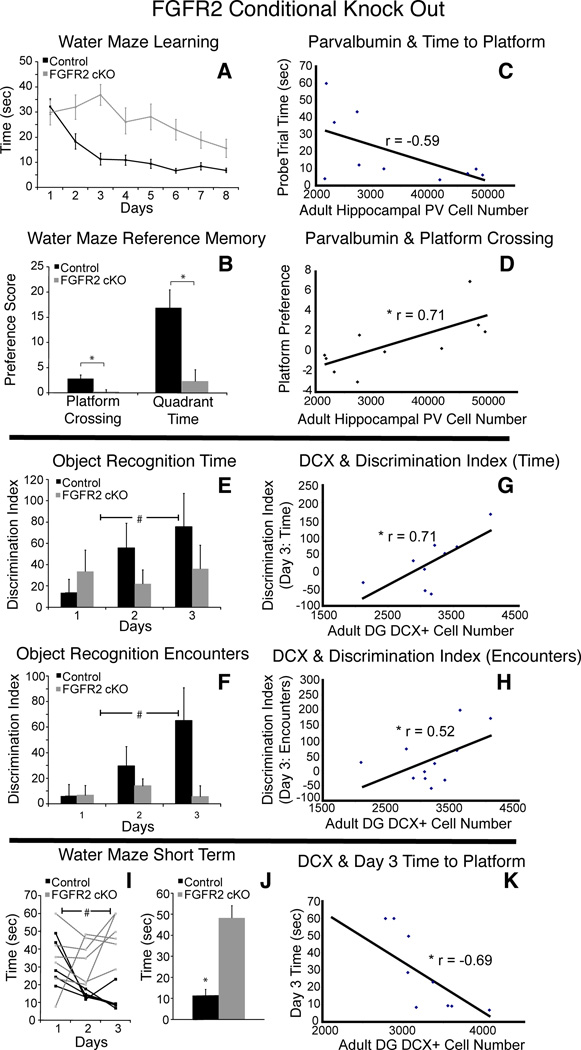Figure 3.
Cognitive performance in FGFR2cKO mice was correlated with specific hippocampal cellular alterations. A,B: Water maze showing impairment in FGFR2cKO mice (n=10; 11) with average time to find platform over 8 days of training and water maze reference memory in average platform crossing preference score and quadrant preference score. C,D: Significant correlations of hippocampal parvalbumin+ cell number with (C) ninth day time to find platform location (n= 10) and (D) platform crossing preference (n=10). E,F: Average novel object discrimination index based on (E) time spent orienting to objects or (F) number of encounters with objects across three days in object recognition task, showing significant deficit in learning in FGFR2cKO compared to controls (n= 13; 13) . G,H: Significant correlations of DCX+ cell number in DG with (G) third day novel object discrimination index by time and (H) novel object discrimination index by encounters (n= 11). I: Individual animal performance on the first three days of water maze learning showing instability of memory during acquisition in FGFR2cKO. J: Average time to find platform on day 3 was greater in FGFR2cKO animals than control mice (n= 6; 5). K: Day 3 water maze performance was correlated with DCX+ number (n= 11). # p<0.05 ANOVA; * = p<0.05 students t-tests and r = Pearson correlation coefficient. Scale bar=200 µm.

